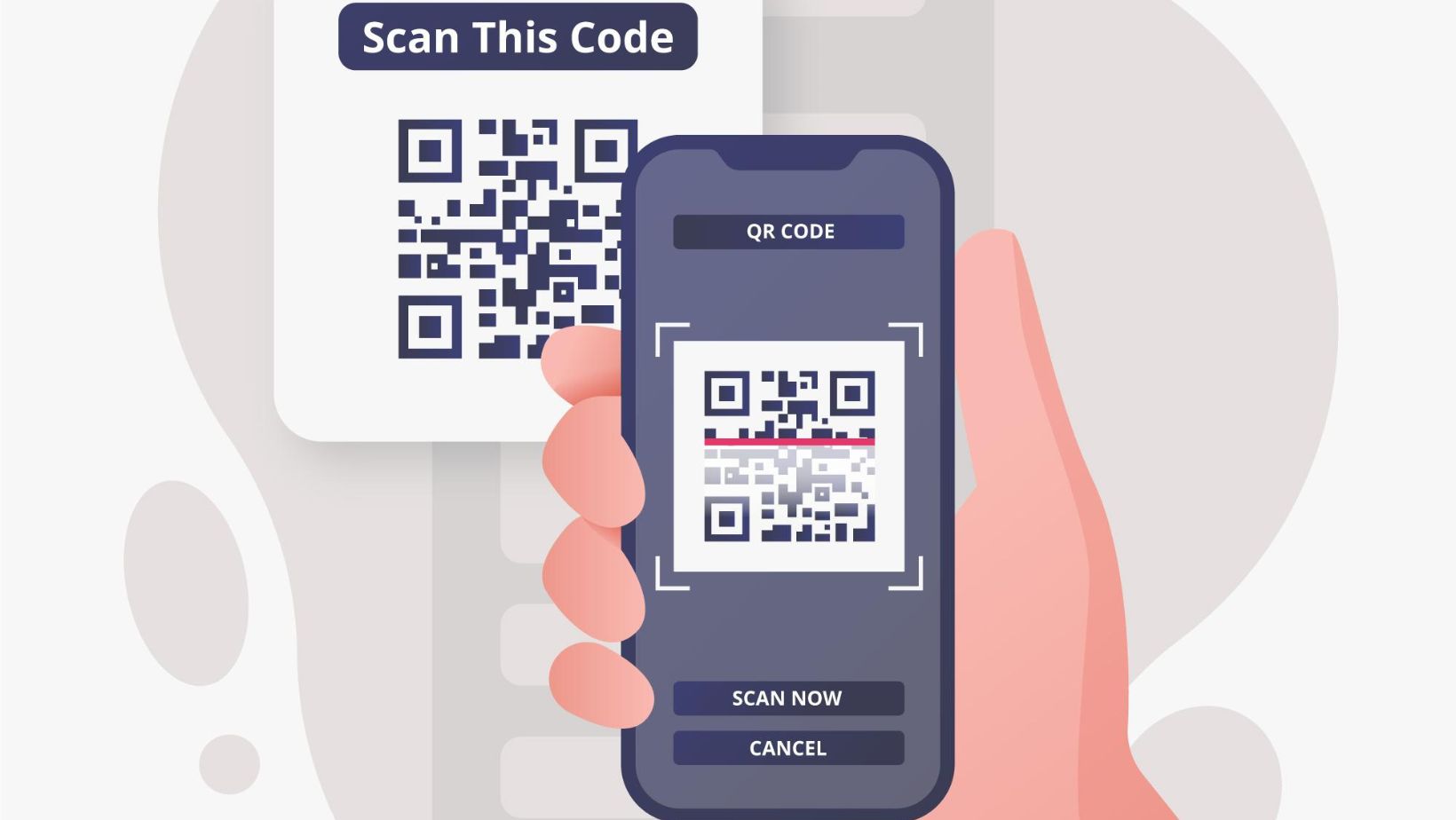QR codes have become increasingly popular in recent years as a convenient way to access information and services such as payment gateways, restaurant menus, advertisements, and all sorts of documents. Although QR codes offer great convenience, they can also pose a threat to users’ privacy and security, as it is difficult to distinguish between legitimate and malicious QR codes. This article will provide you with tips on how to safely scan QR codes and protect yourself from potential risks.
According to ExpressVPN, just shy of 90 million smartphone users scanned QR codes in 2022, and this number is expected to cross 100 Million by 2025 in the United States alone.

The article also emphasizes that Asia far exceeds QR code scans, especially for payment gateways, with transactions amounting to over 2.2 trillion USD in 2023 alone.

However, the widespread utilization of QR codes also presents an opportunity for cybercriminals to potentially implant malicious software on an individual’s smartphone. Scanning a malicious QR code can result in the installation of malware or theft of personal information. As a result, it is crucial to exercise caution when scanning QR codes.
Common QR code scams include fake QR codes sent in phishing emails, tampered QR codes in advertisements, parking meter payments, and malicious actors printing out QR code stickers and physically placing them over genuine ones.
Risks of scanning QR codes
Malware attacks: One of the most significant risks of scanning QR codes is malware attacks. Malicious QR codes can be created by hackers to install malware on your phone, which can then steal your personal information, such as passwords, credit card numbers, and contact information. Once your personal information is compromised, hackers can use it to commit identity theft or other crimes. To protect yourself from malware attacks, it is essential only to scan QR codes from trusted sources and use a QR code scanner with a built-in security feature.
Phishing attacks: Another risk associated with scanning QR codes is phishing attacks. Hackers can create QR codes that lead to fake websites that look legitimate. Once you enter your login information on the fake website, the hacker can steal your login credentials. To avoid falling victim to phishing attacks, be suspicious of QR codes that are sent to you in emails or text messages, and make sure the website you are visiting is secure before entering any sensitive information.
Location tracking: QR codes can also be used to track your location, which can further lead to targeting you with ads or tracking your movements. While location tracking can be convenient in some situations, it can also be a privacy concern. To protect your privacy, it is recommended to only scan QR codes from trusted sources and be aware of the permissions requested by the app or website you are accessing.
Data breaches are another risk associated with QR codes. If a QR code is linked to a data breach, your personal information could be exposed to hackers, which can then be used to commit identity theft or other crimes. To protect yourself from data breaches, make sure your phone’s operating system and security software are up to date, and only scan QR codes from trusted sources.
How do QR code scams work?
- A scammer sends you a QR code in an email or text message that looks like it’s from a legitimate company. Scanning the code takes you to a fake website that looks like the real one. Once you enter your login information on the fake website, the scammer can steal your login credentials.
- You’re at a store, and you see a QR code on a sign that says “Free Wi-Fi.” When you scan the code, it takes you to a website that asks you to enter your personal information in order to connect to the Wi-Fi. Once you enter your data, the scammer can steal your personal information.
- You’re at a concert, and you see a QR code on a poster that says, “Win tickets to the next show!” When you scan the code, it takes you to a website that asks you to enter your contact information in order to enter the contest. Once you enter your information, the scammer can add you to their spam list.
How to safely scan QR codes?
To safely scan QR codes, it is essential to take certain precautions. Here are some tips to help you stay safe:
- Only scan QR codes from trusted sources: Be cautious of QR codes sent to you in emails or text messages, and only scan codes you know are from a legitimate source.
- Check the URL before clicking on it: Before clicking on any links on the website, check the URL to make sure it is secure. A secure website will start with “https://” instead of “http://.”
- Be aware of your surroundings: If you are scanning a QR code in a public place, be aware of your surroundings and make sure no one is watching you.
- Update your phone’s security software: Make sure your phone’s operating system and security software are up to date. This will help to protect your phone from malware and other threats.
- Be cautious when making payments: If you are scanning a QR code to make a payment, ensure the website is secure before entering your credit card information.
- If you are unsure about the origin of a QR code, do not scan it.
While QR codes are a convenient way to access information and services using smartphones, always be cautious when scanning QR codes, and only scan codes from trusted sources to ensure your personal information remains safe.


![Download BGMI 3.1.0 APK + OBB [Battlegrounds Mobile India 3.1]](https://www.androidsage.com/wp-content/uploads/2022/07/Battlegrounds-Mobile-India-2.1.0-APK-Download-BGMI-2.1-APK-and-OBB.jpg)


![Download GCAM 8.4 APK For All Samsung Galaxy Devices [Exynos and Snapdragon]](https://www.androidsage.com/wp-content/uploads/2022/04/GCAM-8.4-APK-Download-For-Samsung-Galaxy-Devices-Exynos-and-Snapdragon.jpg)



![[Download] Nothing OS 2.5.5a for Phone (2a) also brings ChatGPT integration, AI Brightness, and Camera Upgrades 6 [Download] Nothing OS 2.5.5a for Phone (2a) also brings ChatGPT integration, AI Brightness, and Camera Upgrades](https://www.androidsage.com/wp-content/uploads/2024/04/Nothing-Phone-2a-with-ChatGPT.jpg)
![Forget ChatGPT, This Is The Best AI Chatbot Assistant For Your Phone and Computer [Gallery] 7 Forget ChatGPT, This Is The Best AI Chatbot Assistant For Your Phone and Computer [Gallery]](https://www.androidsage.com/wp-content/uploads/2024/04/The-Best-AI-Chatbot-Assistant-For-Your-Phone-and-Computer.jpg)
![[Download] Nothing OS 2.5.5 for Phone 1 with ChatGPT Integration, AI Brightness, RAM Booster 8 [Download] Nothing OS 2.5.5 for Phone 1 with ChatGPT Integration, AI Brightness, RAM Booster](https://www.androidsage.com/wp-content/uploads/2024/04/Nothing-Phone-ChatGPT-firmware-Download.jpg)
![The Best Launcher for Android Just Got a Huge Update [APK Download] 9 The Best Launcher for Android Just Got a Huge Update [APK Download]](https://www.androidsage.com/wp-content/uploads/2024/04/Best-Android-Launcher.jpg)
![[Download] Android Auto 11.8 Features Revamped Settings Menu with Material You Design 10 [Download] Android Auto 11.8 Features Revamped Settings Menu with Material You Design](https://www.androidsage.com/wp-content/uploads/2024/04/New-android-auto-11.8-APK-Download-with-material-you-settings-menu.jpg)